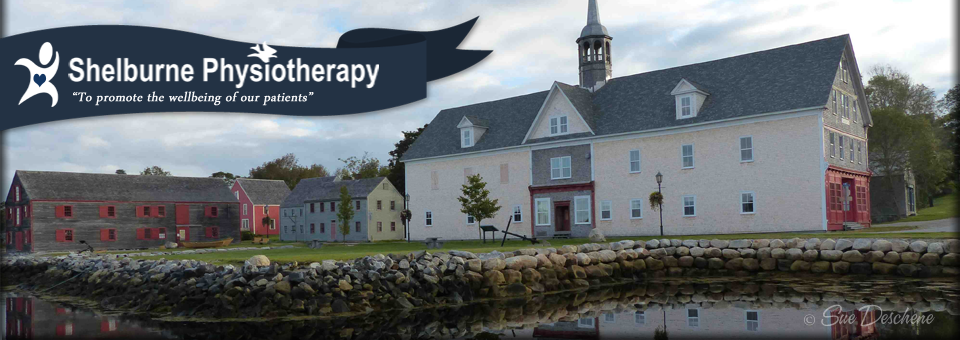Massage Therapy
 Our Patient Services — Massage
Our Patient Services — Massage
Anyone who has experienced massage at Shelburne Physiotherapy can tell you how GOOD it feels! Some of our patients become so relaxed that they fall asleep under the hands of our skilled massage therapists. This stress relief is an important aspect of massage, but Therapeutic Massage is so much more than the "warm and fuzzy."
 What is Therapeutic Massage?
What is Therapeutic Massage?
Massage is the manipulation of soft body tissues and joints with physical and psychological health goals. In therapeutic massage, we work alone or in conjunction with a physiotherapist to improve mobility and function and to reduce swelling and pain caused by injuries, disease or stress. We often focus on the fascia, the connective tissue that covers our whole body. This complex, electrically charged matrix is the first to indicate dysfunction, for example through pain or poor posture, and the first to show beneficial signs of repair.
We practice many different therapeutic massage modalities and treatment approaches to stimulate healing, including:
- Swedish Massage
- trigger point release
- myofascial release
- lymphatic drainage
- joint mobilization
- muscle energy techniques
- connective tissue massage
- deep tissue massage
- hot stone massage
- hydrotherapy
What are the health benefits of massage?
- increases in flexibility and range of motion
- improved ability to perform everyday activities with reduced pain and risk of injury
- relief from inflammatory disease symptoms
- short-term reduction of blood pressure
- improved blood and lymphatic circulation
- strengthened immune function
- reduced recovery time from injury and surgery
- prevention of excessive scar tissue formation
- elimination or reduction of pain
- prevention of pain like tension headache and muscle spasm
- improved sleep
 Why are the relaxation aspects of massage so important?
Why are the relaxation aspects of massage so important?
The two aspects of massage, the physical manipulation and the physical and psychological relaxation, work in synchrony, each enhancing the effects of the other. Both contribute to health.
Current medical thinking holds that prolonged stress can contribute to serious health problems throughout the body -- diseases of the heart, circulatory, nervous and digestive systems, and problems with weight management and memory loss, to name but a few. An extension of this belief is that a reduction in stress will bring about reduced risk of disease and perhaps even reversal of disease symptoms.
The deep physical relaxation produced by therapeutic massage brings about the release of endorphins, our bodies' natural pain killers, and serotonin, a neurotransmitter believed to be beneficial to feelings of wellbeing. The feelings of comfort and wellbeing accelerate the release of tension from muscles and other soft tissues, allowing freer blood circulation and delivery of oxygen and nutrients to cells, and enhancing the ability of therapeutic massage to bring about physical healing.
Many private insurance plans now cover therapeutic massage due to patient demand and the extensive clinical experience of its benefits for people of all ages, from infants to the elderly, and pre- and post-pregnancy.
 Why Choose Shelburne Physiotherapy for Massage?
Why Choose Shelburne Physiotherapy for Massage?
There are more than 80 types of massage and many levels of training for massage practitioners. We are members of the Massage Therapists Association of Nova Scotia (MTANS), which requires all members to have earned a diploma from an accredited school which meets the national standard for massage therapy education as set by the Canadian Massage Therapist Alliance. In addition to clinical training, we have completed a professional curriculum of at least 2200 hours, studying anatomy, physiology, pathology, orthopedic assessment, treatments, and massage techniques. We maintain and augment our skills and knowledge through mandatory continuing education courses.
On your first visit, plan to spend an hour. We will review your medical history and, as some medical conditions require specialized approaches, we ask you to be thorough in detailing your medical history and medications during your first visit. We will then make an objective assessment of your condition and discuss with you a plan of treatment. When you have given your permission, treatment will commence.
Patients for whom special care must be taken during massage are patients with deep vein thrombosis, patients with bleeding disorders or those taking blood thinners like Warfarin and patients with damaged blood vessels or weakened bones (for example, from cancer or osteoporosis).
Patients who should avoid massage are those with a fever or a systemic infection.
